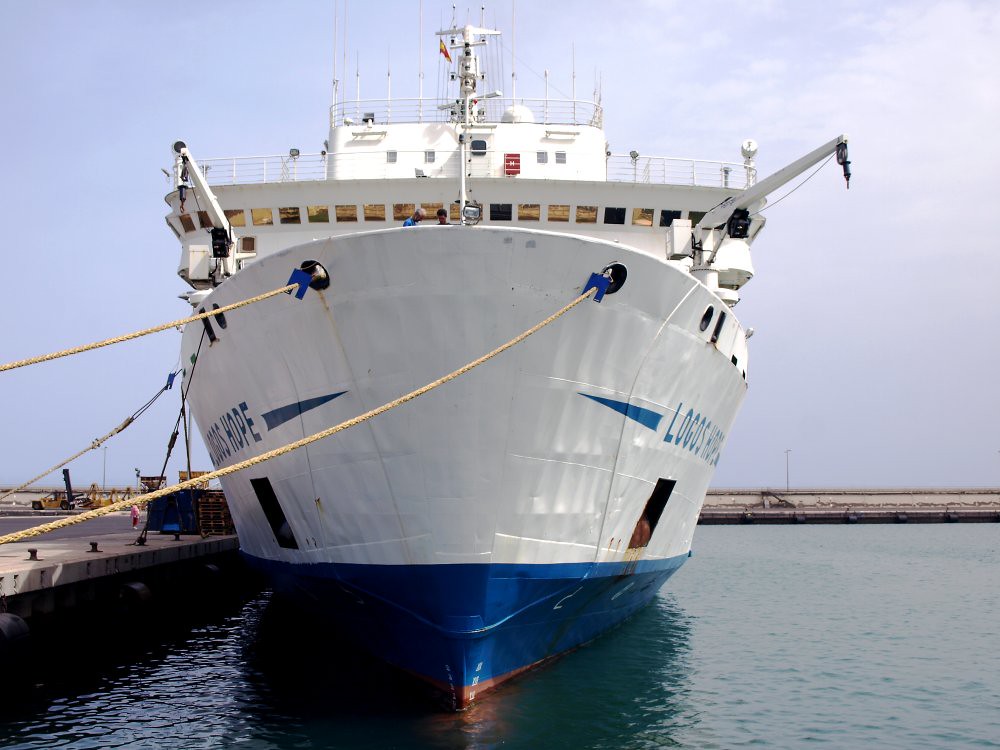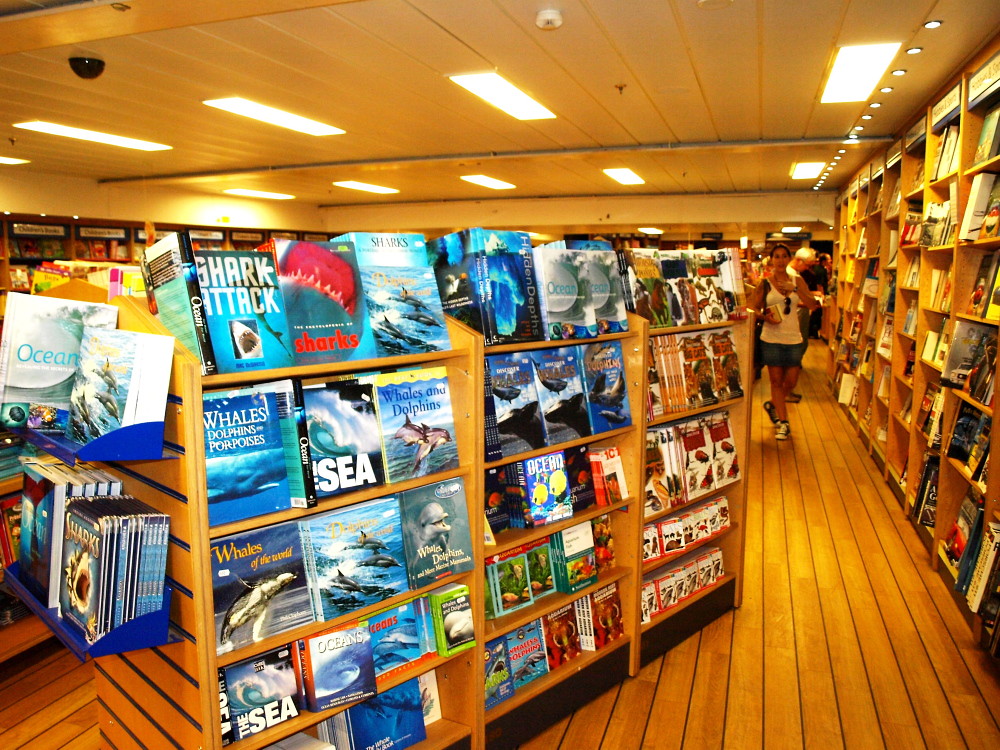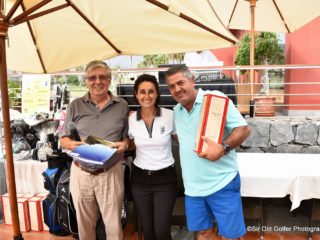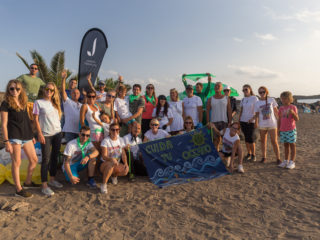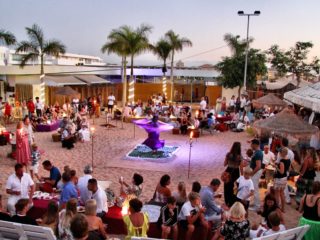Each week Santa Cruz is home to sleek floating palaces whose sole purpose is to act as a pleasure dome for their residents. Last week, however, the port welcomed a unique visitor, the Logos Hope; a ship whose raison d’être wasn’t the comfort and enjoyment of affluent passengers, but to spread a little hope to disadvantaged people around the world.
The 132 metre long Logos Hope is part of GBA Ships which for forty years have sailed into ports from Jamaica to Vietnam bringing knowledge, help and hope to the underprivileged.
The main way they do this is by taking the world’s largest floating book store to places where the opportunity to self educate through exposure to books is about as likely as finding a pot of gold at the end of a rainbow. Since 1970, GBA ships have berthed in 160 countries and welcomed over 40 million eager visitors on board.
On a day when the capital’s skies were post calima, muggy white, I climbed the gangplank to meet the ship’s Media Relations Officer, Jessie Laplue, an amiable and attractive young American from Tennessee. Jessie joined the ship seven months ago, initially working in the book store before taking over the mantle of Media Relations Officer.
The 400 person crew is made up of volunteers who each spend two years on the ship. Some have the experience and technical skills essential for manning a large ship, many are young people from all over the world similar to Jessie who simply want to help others less fortunate, having a life-changing experience in the process. It’s a multicultural community and Jessie shares a tiny cabin with three other girls from Holland, Japan and Peru.
As we walked around the ship, passing interactive exhibits, film shows and mock-ups of the crew’s cabins Jessie explained that the goal of the Logos Hope, apart from giving people access to over 6000 titles ranging from educational text books to The Chronicles of Narnia, is to promote cross-cultural understanding, train young people and provide practical care in the community.
Since Jessie joined the crew, the ship has berthed in various Caribbean Islands, crossed the Atlantic and worked it’s way up the West African coast stopping at impoverished countries such as Sierra Leone and Liberia. In Liberia they were told that there wasn’t a bookshop in the whole country and by the time they opened the ship to the public, there was a queue of people stretching along the dock. In one day they welcomed 12000 people to the ship, many of whom had been waiting for 4-5 hours just for the chance to buy or even hold a treasure that most of us take for granted.
The on-board book store is surprisingly big (there are half a million books) and my nostrils were filled with that wonderful smell which promises knowledge and adventure. As we strolled through the aisles Jessie shared snippets about the book-buying habits of various places; visitors in the Caribbean snapped up puzzle books, whilst in Africa it was English dictionaries and text books.
Books are sold at discounted rates utilising a units pricing system so that the cost of books is relative to the economics of each country. A book purchased on board in Santa Cruz, although cheaper than a conventional book shop, costs more than the same book purchased on board in Monrovia. It’s a fair and sensible system.
Apart from bringing knowledge in book form to developing countries, the crew lends support in practical ways ““ providing free health and dental care and helping out in hospitals. In Liberia Jesse and other crew members visited a children’s ward. “We knew they were very sick the moment we walked into the ward,” she told me. “We were mobbed by children wanting to touch us everywhere we went in Africa, but there they barely reacted. We spent our time with them singing, telling stories and making animals out of balloons. I know we didn’t change their conditions, but by the time we left there was no doubt they were different; livelier and smiling.”
Bringing even the tiniest ray of light into a terminally sick child’s life is an act to be applauded.
However, Jesse’s descriptions of Africa highlight the chasm between there and Tenerife and I posed the question why the Logos Hope chose to berth at Santa Cruz.
“We don’t just visit developing countries,” Jesse informed me. “We offer whatever support we can to socially disadvantaged people in other ways, visiting drug rehabilitation centres and prisons as well as old people’s homes and single parent groups.” Which is exactly what they’ve been doing in Tenerife.
The Logos Hope departs Santa Cruz on Tuesday 21st September, taking its commendable work and multicultural message of hope to pastures new. It’s a shame that we weren’t aware of the ship’s arrival further in advance. Where there were 12000 people waiting to visit the Logos Hope in Liberia, there were twelve in Santa Cruz when I was there. Possibly that’s partly due to the way information is disseminated last minute in Tenerife, but also maybe because books aren’t a rarity here.
If the Logos Hope returns to these shores, please visit it; any project dedicated to bringing the merest glimpse of light to places where darkness prevails deserves our support.
